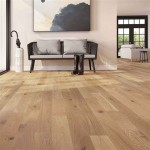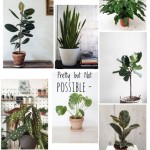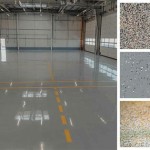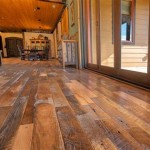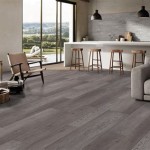Unengineered Hardwood Flooring - A Great Choice For Your Home
When it comes to choosing the right flooring for your home, there are many factors to consider, including durability, style, and cost. Hardwood flooring is a popular choice for many homeowners because it is beautiful, durable, and relatively easy to care for. However, there are two main types of hardwood flooring: engineered and unengineered. In this article, we will focus on unengineered hardwood flooring and discuss its advantages and disadvantages.
What is Unengineered Hardwood Flooring?
Unengineered hardwood flooring is made from a single piece of solid wood. It is typically thicker than engineered hardwood flooring and has a longer lifespan. Unengineered hardwood flooring can be sanded and refinished multiple times, which means it can last for decades.
Advantages of Unengineered Hardwood Flooring
There are many advantages to choosing unengineered hardwood flooring for your home, including:
- Durability: Unengineered hardwood flooring is very durable and can withstand heavy foot traffic. It is also resistant to scratches and dents.
- Longevity: Unengineered hardwood flooring can last for decades with proper care and maintenance. It can be sanded and refinished multiple times, which helps to extend its lifespan.
- Beauty: Unengineered hardwood flooring is available in a wide variety of species, colors, and finishes. It can be used to create a variety of looks, from traditional to contemporary.
- Investment: Unengineered hardwood flooring is a good investment for your home. It increases the value of your home and can be a selling point for potential buyers.
Disadvantages of Unengineered Hardwood Flooring
There are also some disadvantages to choosing unengineered hardwood flooring for your home, including:
- Cost: Unengineered hardwood flooring is more expensive than engineered hardwood flooring.
- Installation: Unengineered hardwood flooring is more difficult to install than engineered hardwood flooring. It requires a professional installer to ensure it is installed correctly.
- Moisture: Unengineered hardwood flooring is not as moisture-resistant as engineered hardwood flooring. It can be damaged by water and humidity.
- Expansion and contraction: Unengineered hardwood flooring can expand and contract with changes in temperature and humidity. This can cause the floor to buckle or gap.
Is Unengineered Hardwood Flooring Right for You?
Whether or not unengineered hardwood flooring is right for you depends on your individual needs and preferences. If you are looking for a durable, beautiful, and long-lasting flooring option, then unengineered hardwood flooring is a great choice. However, if you are on a budget or if you are concerned about moisture, then engineered hardwood flooring may be a better option for you.
Conclusion
Unengineered hardwood flooring is a great choice for homeowners who are looking for a durable, beautiful, and long-lasting flooring option. However, it is important to weigh the advantages and disadvantages before making a decision. If you are not sure whether or not unengineered hardwood flooring is right for you, be sure to consult with a professional flooring contractor.

Types Of Hardwood Flooring Forbes Home

Difference Between Unfinished Engineered Hardwood Floors

Hardwood Vs Engineered Wood Flooring Which Is Best For You Forbes Home

Hardwood Flooring The Home

Hardwood Flooring The Home

The Blog Judith Balis Interiors

Hardwood Flooring The Home

The Best White Oak Floors Evolution Of Style

Hardwood Flooring The Home

Biobased Amines From Synthesis To Polymers Present And Future Chemical Reviews
See Also
